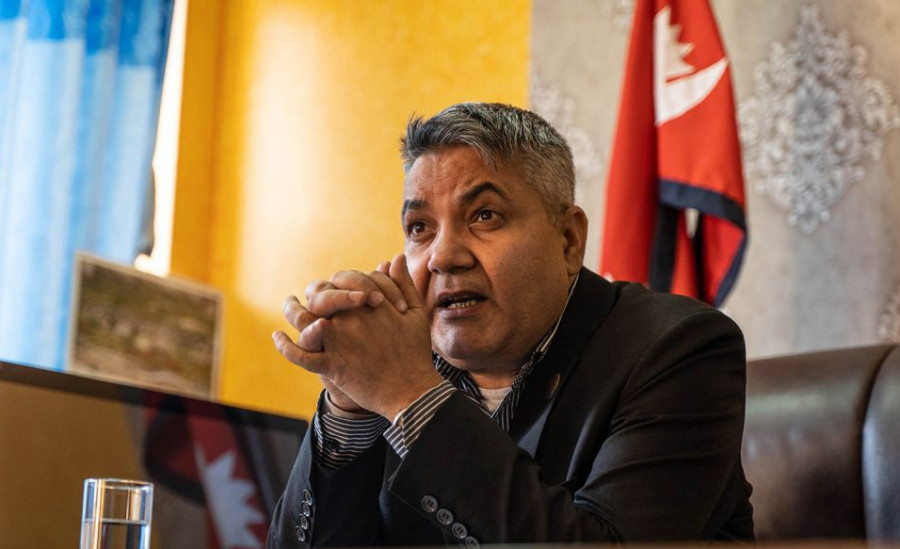Editorial
Rotten to the core
Gokul Baskota must be thoroughly investigated, and so should the facilitator of the alleged bribe.
Minister for Communication and Information Technology Gokul Baskota has resigned. And a good thing, too, since his ability to remain in power after the recent leak of audio recording had made his position untenable. In the recording, which is a conversation about security printing contracts, the voice attributed to the minister is clearly heard making a number of compromising plans. Not least is the negotiation of a Rs700 million personal ‘commission’. Crucially, the recording also points to how much respect members of the executive have for the bureaucracy, the minister is heard communicating his displeasure of administrative officials by using a foul and derogatory term, repeatedly.
But what this recording really shows is how systemic corruption is in government. Baskota’s is not the first major case of graft to have been exposed. Unfortunately, it may not be the last, given how corruption has become an open secret. But it cannot remain so. Baskota’s early resignation, within hours of the leak, provides an opportunity for the concerned to carry out an unbiased investigation. The government, the Commission for the Investigation of Abuse of Authority, and all concerned must pursue this investigation without favour. Further, since Baskota is one of Prime Minister KP Oli’s closest confidants, there may be a push for distractions to subdue the investigation. This cannot be allowed to happen.
The printing press debacle has been one of the major failings in planning and procurement for the Oli government. Stemming from Oli’s obsession with setting up a security printing facility domestically to handle all of Nepal’s needs, the idea was to set up such a facility in Nepal to handle the printing of excise duty stickers, passports, and eventually banknotes. This would reduce the country’s reliance on services abroad. After a muddle of agreements and disagreements surrounding German and French bidders, the government signed a memorandum of understanding with the French government-owned IN Groupe in March 2019.
But with such a facility costing over $300 million, without the ability to print money, there were doubts whether there was enough business for secure documents, certificates and stickers to make the deal worth it. Cue in the entrance of middlemen into the parliamentary Public Accounts Committee hearings, where some were found to be lobbying for or against the set up of a printing press. Bijaya Mishra, the representative of a Swiss firm vying for Nepal’s business abroad, in lieu of setting up an in-house facility, was found to be one of the ‘experts’ brought in to argue against a domestic security printing press. Incidentally, this is the same Mishra whose voice has been allegedly caught in the recording with Baskota’s.
The seepage of corruption to a point where businesspersons with vested interests are brought into Parliament as experts, to a point where they are found to be discussing commissions with sitting cabinet members, is alarming. It further raises questions of the level of corruption in other projects, such as the purchase of Airbus aircraft by Nepal Airlines Corporation. Airbus itself has admitted to paying off Nepali officials, who remain unnamed.
With the controversy surrounding the handling of the Airbus deal, and with the bias in the charging of those involved in the Lalita Niwas scandal, the concerned have been handed one more opportunity to prove to the people that the fight against corruption exists—and that it truly works. Baskota must be thoroughly investigated.
But all too often, it is found that the prosecutors—if they ever bring charges at all—are focused on the receivers of graft. There has not been a single case brought against the facilitators of such corruption—this must change. The concerned must also thoroughly investigate Mishra for his part.
***
What do you think?
Dear reader, we’d like to hear from you. We regularly publish letters to the editor on contemporary issues or direct responses to something the Post has recently published. Please send your letters to [email protected] with "Letter to the Editor" in the subject line. Please include your name, location, and a contact address so one of our editors can reach out to you.




 14.24°C Kathmandu
14.24°C Kathmandu














